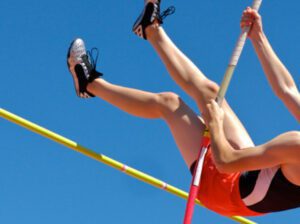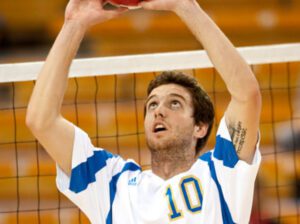From the beginning of sports, coaches and parents have had a love-hate relationship. There are parents who are too involved and scrutinize everything the coaching staff does, and there are parents who are not involved at all and drop their kids off for practice and games. Some parents and coaches communicate well with each other; while others try their best to be civil. The relationship between coach and parent involves so much more than just wins, losses, or playing time, and this relationship needs to be a partnership for the sake of the child.
Athletics do a great job of pulling people together, just like families. Teams rally together to accomplish a common goal, and families rally around the victories and defeats that come with competition. Through this sense of community, coaches and players can develop lifelong relationships. However, this type of cohesion can be inhibited by a parent who provides a toxic environment around the team. The relationship between a coach and a parent requires: communication, trust, and alignment with the coach.
1. Communication
Communication is a huge piece of this relationship. Coaches want to hear from the parent before conflict arises. They want to have a civil conversation opposed to a screaming match.
If there is a problem, address is cordially. Let the coach know what you are feeling without creating more emotions or actions.
Many coaches will have a 24-hour rule put into place to avoid added conflict. This keeps both individuals’ emotions in check, and it allows both parties the chance to think before they speak and act. Quality communication alone will make for a smooth season with the parent and the coach. If you are a parent reading this: work on how you communicate with your child’s coach. This is definitely a learned skill, and your child’s coach will greatly appreciate your effort of communicating well.
2. Trust
Trust is the second aspect of a quality relationship. This type of trust is difficult to give out. A parent needs to trust that the coach knows what they are doing and that they are looking out for the best interest of their players. As a parent it is easy to look at the sport through the lens of your child. You see decreased playing time and automatically lose trust in the coach. You see a “bad result” and automatically think “this coach doesn’t know what he is doing”. Trusting the coach to teach your child the fundamentals of their sport is super important. If you have the mindset that you can do it better, start coaching. You will quickly learn that it is easier to coach from the sideline. If trusting your child’s coach is hard for you…take the time to work on it. Communicate with the coach and take the time to learn the process. Sometimes learning about the why can help you build trust with the coach.
It can be extremely hard to trust others, and it can be even harder to trust another person with the well-being of your child. However, this is exactly what needs to happen in athletics. Athletes are always being pushed out of their comfort zone on the athletic field, like when a coach asks a player to play a different position. As a parent it may be hard to see your child move to a different role. However, the coaching staff sees how a positive outcome can come from this change.
Talking behind the coaches back to the player can put your child in a tough spot–they look up to both their parents and their coach, and now you are making them choose sides on who to listen to.
3. Alignment
Echoing what your coach says at home can make a huge difference. This is not only a huge part of the coach-parent relationship, this is also key to the player-coach relationship. If players are being told to stay low when playing defense, echo that at home. Firstly, this reinforces proper techniques at home, which can increase playing time on the field. Secondly, it bolsters the trust that your player has in their coaching staff. Once again your child looks up to you as a parent. By reinforcing what the coach says you are strengthening the relationship between your child and their coach. Coaches want their player to practice at home. A large piece of this puzzle is having a parent that has the time and drive to practice with their child.
In all reality this may be the biggest part of the relationship between coach and parent. Coaches teach your children (and you) concepts about their specific sport. In turn, you reinforce and practice those concepts at home so they become second nature.
Parents if you are reading this and are having trouble echoing what your child’s coach is telling them…work on it. It is counterproductive to teach new things at home. If you think there is a better way to do something communicate it with the coach and help all members of the team get better.
As you can see, the relationship between a coach and a parent is vital. There is more than just wins, losses, and playing time when it comes to the parent-coach relationship. The development of the child is at risk if there is a toxic relationship. Please take action and create quality relationships with your children’s coaches. Your child’s coach and your child will be forever grateful. Try your best to watch the game from the view of the entire team and not just your own player. If you can do this, the relationship with the coach will be a partnership opposed to a stipulation based on your child’s statistics, or playing time. Your child does not need two coaches. Instead, they need a supportive parent that wants to see their child learn and grow in their sport.
CoachUp is the safest and easiest way to find a coach for personalized training. With our 100% money-back guarantee and vetted coaches, anyone can achieve their full athletic potential. Find your perfect coach today and become the athlete you want to be!
How useful was this post?
Click on a star to rate it!
Average rating 3 / 5. Vote count: 2
No votes so far! Be the first to rate this post.




